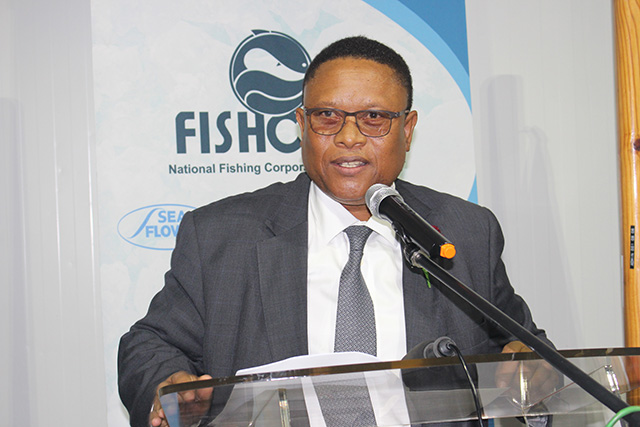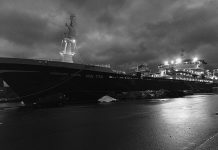By Shinovene Immanuel | 22 August 2018
FISHERIES minister Bernhard Esau confirmed that a company owned by Namibia’s intelligence service receives fishing quotas from the government.
He, however, said the arrangement has been in place before he was appointed fisheries minister in 2010.
The Namibia Central Intelligence Service (NCIS) formed a fishing company with the Mozambican national intelligence service to generate funds for intelligence-gathering activities.
This partnership has, however, been rocked by allegations that one of Namibia’s top four intelligence officials is the main accused in a N$17 million corruption case involving money laundering and fraud.
Esau told The Namibian yesterday that he was aware of the partnership, but did not want to be involved in the dispute about the use of funds in that company.
“I know about that joint venture. It was there before I came in [to office as minister]. I’m just continuing the practice,” he said.
Indications are that the secretive company has existed and been receiving fishing quotas as far back as 2003, during Sam Nujoma’s presidency.
Asked whether it does not make him uncomfortable to issue fishing quotas to a spy agency, Esau said some decisions were made by people in higher positions.
“These are issues that I cannot comment on. I don’t even want to know [about the joint venture],” the minister said.
Asked whether he would push for reforms so that the spy agency explains how money from fishing quotas is used, Esau said: “No. No. I don’t want to be involved in it. All I want is peace and stability”.
He speculated that maybe the quotas were being put to good use, like fighting illegal fishing.
Esau’s stance on the lack of accountability surrounding the intelligence service’s fishing company stands in stark contrast to his expressed views of a few weeks ago.
In an interview with The Namibian last month, Esau questioned why some people wanted local and regional authorities and government agencies to get fishing quotas, implying why the security service was not included.
The national spy agency has been secretive and unaccountable since inception shortly after independence, a situation which has led to some senior intelligence officials believing that they should not be charged for any wrongdoing.
The criminal case has opened a Pandora’s box around the N$17 million embezzlement court case involving the Namibian and Mozambican intelligence partners.
The high-ranking official in the NCIS has been charged with multiple counts of fraud and corruption.
The first appearance of the accused man took place behind closed doors in the Windhoek Magistrate’s Court last Wednesday.
The presiding magistrate, Walter Mikiti, ordered that the official court record of the case, which would normally be a public record, be kept under wraps, and not be made available to the media after a public prosecutor asked for such an order to be made on the grounds of “national security”.
It appears that one of the reasons for the secrecy is to protect a long-serving spy.
The Namibian spoke to several people with direct knowledge of the matter, who declined to be named in order to discuss sensitive intelligence matters.
These sources told The Namibian that the man – his name is known, but is being withheld – was charged with multiple counts of fraud, the corrupt use of his office or position to obtain gratification, and money laundering.
The charges are understood to involve the N$17 million allegedly generated from fishing quotas.
Sources said a Mozambican intelligence officer was also charged in his country with corruption over the disappearance of the money.
A source said this case was investigated by former deputy police inspector general Vilho Hifindaka, who was posted to Congo-Brazzaville as ambassador in 2014.
A person briefed about this matter said another aspect of the corruption case was that an intelligence officer lied to investigators about the details of buying a vessel by the fishing company owned by the spies.
According to the person, investigators asked about a certain Russian man who was involved in the buying of the vessel.
An intelligence officer allegedly said the Russian had died. It turned out that the Russian was not dead, but confined to a wheelchair at Swakopmund.






